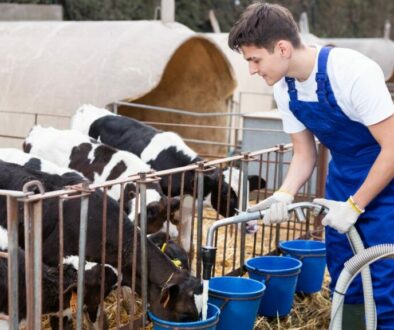How To Become A Biologist?
Biology is a fascinating field of science that focuses on the study of living organisms and their interactions with their environment. If you have a natural curiosity about the world around you and are passionate about the study of life, then becoming a biologist could be a rewarding career choice. In this article, we will explore the steps to becoming a biologist, the skills required, the role of a biologist, and the benefits of working as a biologist.
Steps to Become a Biologist
Follow these steps to Become a Biologist:
- Gain Practical Experience
Before embarking on your academic journey to become a biologist, it is important to gain some practical experience in the field. One way to do this is by volunteering or interning at a local laboratory or research facility. This will give you hands-on experience and exposure to the day-to-day tasks of a biologist.
- Stay Up-to-Date with Advancements in the Field
Another important aspect of becoming a biologist is to stay up-to-date with the latest advancements in the field. This can be achieved by attending conferences, workshops, and seminars. These events provide opportunities to network with other professionals in the field and learn about new research and technologies.
- Achieve Academic Qualifications
In addition to academic qualifications and practical experience, a successful biologist must possess certain skills and qualities. Biological research often involves complex experiments, data analysis, and interpretation, so it is important to have a strong foundation in mathematics, statistics, and computer science.
- Choose a Career Path
There are many career paths available to those with a degree in biology. Some biologists work in research and development, while others work in healthcare, environmental conservation, or education. Biologists can also work in government agencies or non-profit organizations, where they may be involved in policy-making or advocacy work.
Overall, becoming a biologist requires dedication, hard work, and a passion for the natural world. With the right education, experience, and skills, you can make a meaningful impact in the field of biology and contribute to our understanding of the world around us.
Skills Needed For Becoming A Biologist
Becoming a successful biologist requires a lot of hard work and dedication. However, it is also an incredibly rewarding career that can lead to exciting discoveries and advancements in science. In addition to the skills listed above, there are a few more that are essential for success in this field.
One of the most important skills for a biologist is attention to detail. Biologists must be meticulous in their work, ensuring that every observation and measurement is accurate and precise. This attention to detail is critical in the laboratory, where even a small error can lead to inaccurate results.
Another important skill for biologists is adaptability. Science is constantly evolving, and biologists must be able to adapt to new technologies, techniques, and theories. This requires a willingness to learn and a passion for staying up-to-date with the latest developments in the field.
Biologists must also have a strong sense of ethics. The work of biologists often involves experimentation on living organisms, and it is essential that this work is conducted in an ethical and humane manner. Biologists must be able to balance their desire to advance scientific knowledge with their responsibility to protect the welfare of the animals and plants they study.
Finally, biologists must have a deep appreciation for the natural world. This requires a love of nature and a desire to protect the environment. Biologists play a critical role in understanding and preserving the delicate ecosystems that exist around the world, and it is essential that they approach this work with a sense of wonder and respect.
Becoming a biologist requires a diverse set of skills, including critical thinking, problem-solving, and data analysis. However, it also requires attention to detail, adaptability, a strong sense of ethics, and a deep appreciation for the natural world. With these skills and a passion for science, anyone can become a successful biologist and make a meaningful contribution to the field.
What is a Biologist?
Biologists are often interested in the evolution of organisms, studying how they have changed over time and how they are related to each other. They may also be interested in the structure and function of cells, tissues, and organs, exploring how they work together to keep living organisms alive. Biologists may also study the interactions between organisms and their environment, examining how living things adapt to changing conditions and how they affect the ecosystems they live in.
One area of biology that has received a lot of attention in recent years is genetics. Biologists who specialize in genetics study the genetic material of organisms, including DNA and RNA, to understand how traits are passed from one generation to the next. They may also study genetic disorders and work to develop treatments or cures for these conditions.
Another area of biology that has important practical applications is microbiology. Microbiologists study microorganisms, such as bacteria, viruses, and fungi, and their interactions with other living things. They may work to develop new antibiotics or other treatments for infectious diseases, or they may study the role of microorganisms in environmental processes such as nutrient cycling.
Biologists also play an important role in conservation efforts, working to protect endangered species and preserve the biodiversity of ecosystems. They may work with government agencies or non-profit organizations to develop conservation plans or conduct research on threatened species.
In addition to their scientific work, biologists may also be involved in science education and outreach. They may teach courses at universities or colleges, or they may develop educational materials for schools or the general public. They may also work to communicate scientific findings to policymakers or the public, helping to inform decisions about issues such as climate change or public health.
Overall, the work of biologists is diverse and multifaceted, with many different areas of specialization and many important applications in fields such as medicine, agriculture, and environmental science. As our understanding of the natural world continues to evolve, the work of biologists will remain essential in helping us to address important challenges and improve our lives.
The Benefits of Becoming a Biologist
Working as a biologist is a highly rewarding career choice, as it allows individuals to explore the intricacies of the natural world and contribute to scientific knowledge. One of the most significant benefits of working as a biologist is the sense of fulfillment that comes from making a positive impact on the environment and the world around us.
Biologists are at the forefront of scientific research, using state-of-the-art technology and equipment to conduct cutting-edge experiments and gain a deeper understanding of the natural world. This allows them to develop innovative solutions to some of the most pressing environmental and biological challenges of our time.
Moreover, working as a biologist also provides numerous opportunities for career advancement and professional development. Biologists can choose to specialize in a particular field, such as genetics, ecology, or microbiology, and can work in a variety of settings, including academia, biotechnology, pharmaceuticals, environmental consulting, and government agencies.
Biologists also enjoy an excellent salary and benefits package, which includes health insurance, retirement plans, and paid time off. They also have job security, as the demand for biologists is expected to grow in the coming years, particularly in fields such as biotechnology and environmental science.
Another significant benefit of working as a biologist is the opportunity to travel and work in different parts of the world. Biologists often collaborate with colleagues from around the globe and may travel to remote locations to conduct fieldwork or attend conferences and workshops.I
Working as a biologist is a highly rewarding and fulfilling career choice that offers numerous benefits, including the ability to contribute to scientific knowledge, job security, and opportunities for career advancement and travel. Biologists are at the forefront of scientific research, using cutting-edge technology and equipment to make a positive impact on the environment and the world around us.
Becoming a biologist requires years of education and training; however, it can be a rewarding career choice for those with a passion for the study of life and a natural curiosity for the world around them. With the right education and skills, biologists have the opportunity to work in a variety of fields, conduct groundbreaking research, and contribute to solving global challenges.




